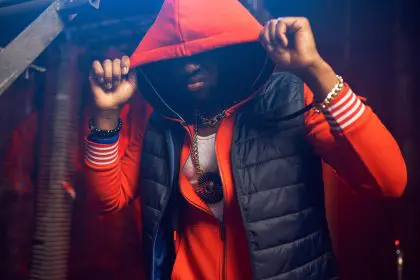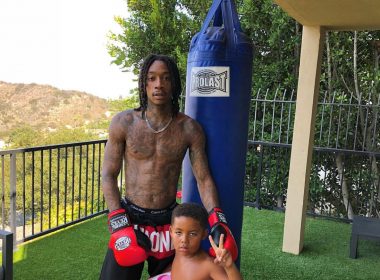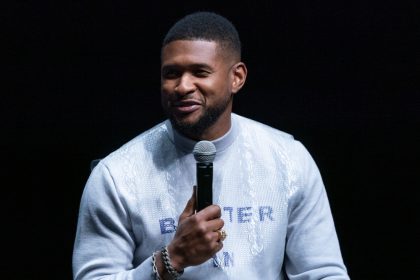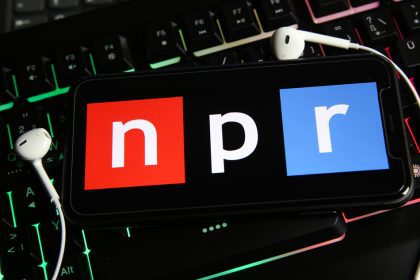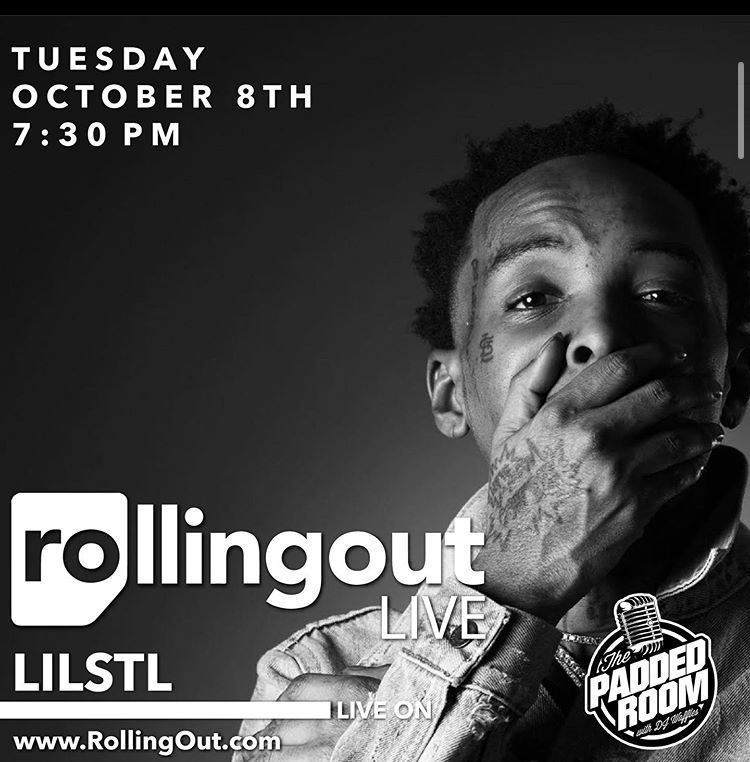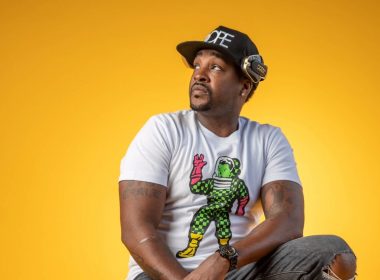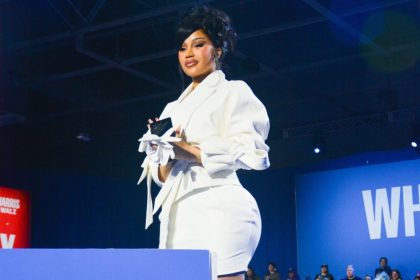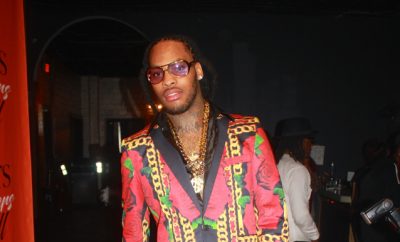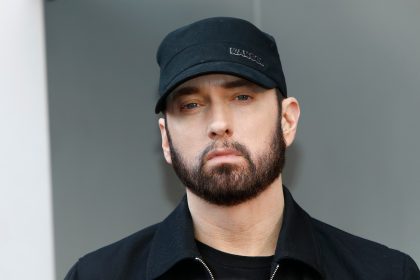In the swirling chaos of the music world, where everyone’s a DJ, a producer, or at least knows someone who owns turntables, a singular figure emerges: DJ Waffles. Hailing from Brooklyn, now calling Atlanta home, Waffles didn’t just stumble into success; he engineered it—literally. Starting at Be100 Radio, not so much by choice but by the subtle nudge of fate, he quickly realized that pressing buttons behind the scenes wouldn’t cut it. So, naturally, he became a DJ.
But not just any DJ. No, Waffles decided to defy the odds by becoming an actual good one—a rare breed in a world where anyone with a Spotify account fancies themselves a master of the 1s and 2s. His personable nature didn’t hurt either, turning casual acquaintances into career-launching contacts. It wasn’t long before he was the face (and voice) of the top-rated show for breaking independent artists, earning him the title of one of the best independent DJs on the East Coast, which is a pretty big deal.
As if that wasn’t enough, Waffles also found time to pop up on reality TV—because why not? Whether spinning for the likes of Kash Doll or making waves on shows like “Growing Up Hip Hop ATL,” his resume reads like a highlight reel of someone who didn’t just play music but curated an experience fit for television. And now, with his own podcast, “The Padded Room,” he continues to do what he does best: talk to interesting people and make them sound even more interesting, all while subtly reminding us that being bran -safe doesn’t mean being boring.
In Who’s Spinning, he talks with Munson Steed about his career and vision for music for the people.
Where were you when you first got bit by that DJ bug?
I was working at B100 Radio, which is owned by Debra Antney. It started in 2013, and I was an engineer over there at the radio station. I was always the guy who they asked for the music. They were like, “Hey, the guy Terrell in the back, he has the music …” That’s where my love started to build more for music because I was always listening to music, engineering shows, playing music in there. And then one day, my homeboy was like … “You should be a DJ.” We were having a drink, and I was like, “Oh, yeah, maybe this might make sense.” And then we just took it. We just ran with it. And then, before you knew it, six months later, I’m DJing for the WNBA, I’m DJing on the radio, and it just spiraled from there. So, now look where we are today, just from that one night.
What do you do to stay connected to the culture beyond just, “Oh, I’m a DJ”?
I just create platforms. I’ve created a DJ magazine. I’ve done tours with independent artists … I’ve done my own open mics. I’ve created my own playlist. I’ve done so many different events and so many givebacks. That’s how I’ve always kept my hands on the pulse of the culture—just by creating platforms. Whatever I felt like I couldn’t be a part of, or I was a part of, I just branched off and did my own thing, and tried to figure out how I could give back to the artists. When you gave me an opportunity at rolling out, it just skyrocketed everything. It just gave me a platform for more people to see what it is that I was capable of doing.
When you think about fashion evolution and labels, what would you say as a DJ you see from that floor? Where are we today as it looks with fashion?
It’s changing drastically. If you look at the way kids and artists dress now, it’s totally different from what we were doing in maybe the early 2000s, the ’90s. It’s totally different. But at the same time, it’s like you can see where they got the swag from. You can see how it originated, and now how it’s revolutionizing as it’s growing. So it’s a huge change. But it’s always going to be somebody that’s going to fit where it’s going to build, like a Pharrell. Pharrell is going to step in and be at Louis Vuitton to show how this thing is going to grow. Virgil is going to step in at Louis Vuitton to show everybody how things are going to grow. And maybe everybody can’t afford Louis Vuitton, but people are going to be enticed to create their own, because that’s where the evolution of new clothing for the music industry is going. So everybody’s going to be able to jump in. Some of my friends have their own brands, and they supersede some of these brands that we’re paying $1,000, $2,000 for shirts when some of your friends are making shirts that are even better and cost like $30, $40. So yeah, it’s definitely changing. But you just gotta stay with it because it’s gonna definitely be different from everybody else.
What do you suggest to a DJ wanting to do corporate gigs?
When you do corporate, you have to have a brand. You have to have a brand that you stand on. It has to be clean. It has to be corporate. And when I say corporate, it’s like easy on the eyes. When they see that you’re sending a one-sheet, the one-sheet has to be well put together. The emails have to be well put together. You have to have a dot-com. You have to have a buffer in place, so when you send those emails, they’re not talking to you, they’re talking to a representative—even if you have to play the representative. You have to have somebody in between that’s going to stand for you. If not, they’re not really checking for you like that. You have to have clean music. You have to be an open-format DJ. You can’t just play hip-hop or R&B. They’re going to want, “Hey, can you play Top 40s? Can you play Soca? Can you play Latin? Can you play ‘this’?” And if you can’t, that already slims your chances of becoming a corporate DJ because you don’t have what they want.
What does it mean as a DJ to be able to be on multiple platforms and be brand safe?
That’s very, very important because I get booked for a lot of events. Somebody called me for Waffles Weekend, and they saw that I was doing a canvas and chill situation, and they wanted to implement THC products and items. And I was like, no. They had the money, but at the same time, I know my brand. My brand’s integrity, like I can’t put that on the line for us to have that, for us to promote that stuff. Like, I can’t do that. So yeah, you gotta be brand safe, especially when you go corporate, and when you’re in the eyes of the public. People want to see the right brands attached to your name. So if they know that my past is the Salvation Army, Sam’s Co., Hot Dog Factory, Positivity Water, rolling out Magazine—these different bigger names—they’re going to be quicker to attach to me than if they’re like, “Oh, well, I got this alcohol, this smoke brand.” It’s not child-friendly. and that’s how I’ve always been–I can play for kids of the age of 8 and up … If you put me in a room, I can execute at a high level, no matter what type of crowd is in there. Just give me 2 or 3 minutes to figure it out, and then we’re good after that.
When you came up with the name “Waffle,” where were you? Were you really doing a waffle dance?
No, nobody was doing no waffle dance. I was on the radio, and the morning show was called “The Rise and Grind Morning Show,” and they wanted to put me on the morning show. I needed a name, so I didn’t really take it seriously. I was like, “Oh, yeah, just call me Waffles.” … I never knew that it was going to do what it has done.
What kind of inspiration does it give you to see D-Nice do the sets that he’s done, the tours for the culture?
I’m gonna tell you two things. One, when I saw it, I felt like when we went through the phase of COVID, and he was going online, and he had all these people jumping and gravitating to what he was doing. I sat back in my house and tried to figure out, like, how do I make the internet? Or how do I create something that’s more lucrative for the DJs around me that can’t do that? … That’s when I created Fresh Mix Magazine. I was like, you know what? I’m gonna make a magazine for DJs because I can call them all up—they ain’t doing nothing now. I can get some articles. I can put this out for them …
Next, I started looking at one of my mentors, and his name is DJ Irie. He’s based in Miami. When I saw his model during the time that I had to sit down, it was like, that’s what I want. I want exactly what he has and what he’s doing for his culture. He has his own weekend. He’s doing some of the biggest parties. He has an amazing team … He’s just growing.
When I see DJs of that magnitude growing, it just shows me that you can do it.
How important is it to preserve scratch culture?
I think it’s very important because that keeps the element. If you’re just playing song after song when you’re DJing, it’s like you sound like a jukebox. Like you’re just playing good records; you know how to move the crowd. But are you speaking to the people? Like, if you don’t cut and scratch, at least be a great host … Know how to talk people into this story that you’re playing music from … I want to tell you a story from the beginning to the end. Because if I’m not telling you a story, it’s gonna make it hard on me to play from the beginning to the end. So I’m gonna warm you up, I’m gonna take you to the highs, take you to the lows, take you where you need to go, and then I’m gonna walk you out. You’re gonna go home, and you had a beautiful day. So, the scratching just gives you another element to what people are listening to. People want to hear mashups. They want to hear a ’90s record with a 2000s beat or a 2000s beat with an ’80s song.
Can you ever lose playing a Michael Jackson record?
No … I got four weddings next month. Michael Jackson is in my starting set. When I go oldies–I’m always doing oldies before I get into anything–Michael Jackson is always in there. Like, always. You have to. It’s like classic music. And when you’re in these certain environments, you have to make them dance. And a lot of people might know older Mike, or they might know Michael Jackson with Justin Timberlake or Jay-Z over a Michael Jackson beat.
How do you use technology?
I ‘ve found a lot of shortcuts. I don’t really use AI to do anything. It’s just more so different apps that they’ve put out to make sure that you can get records a little bit faster than we used to … [I’ve used] Song-wise, Shazam–that’s always worked. If I’m in a club [and] I hear other DJs playing songs or whatever, [or] in a gym, Shazam has been one of the most popular record apps that I’ve used to grab content … Other than that, record pools—they’re still cool. … I’ve used Soundiiz. Soundiiz can convert every playlist that you have into another playlist. So I can convert my Apple playlist into a Spotify playlist, my Spotify playlist into an iTunes playlist, iTunes to Deezer, Deezer into another one. And I feel like that’s good because wherever I want to listen to music, I can move my music around …

